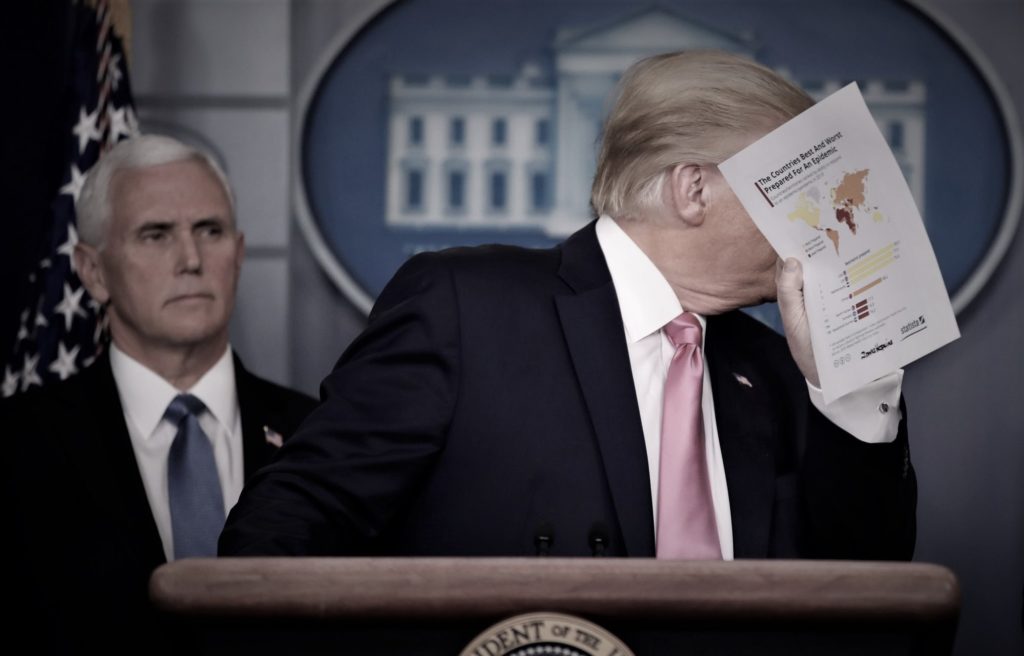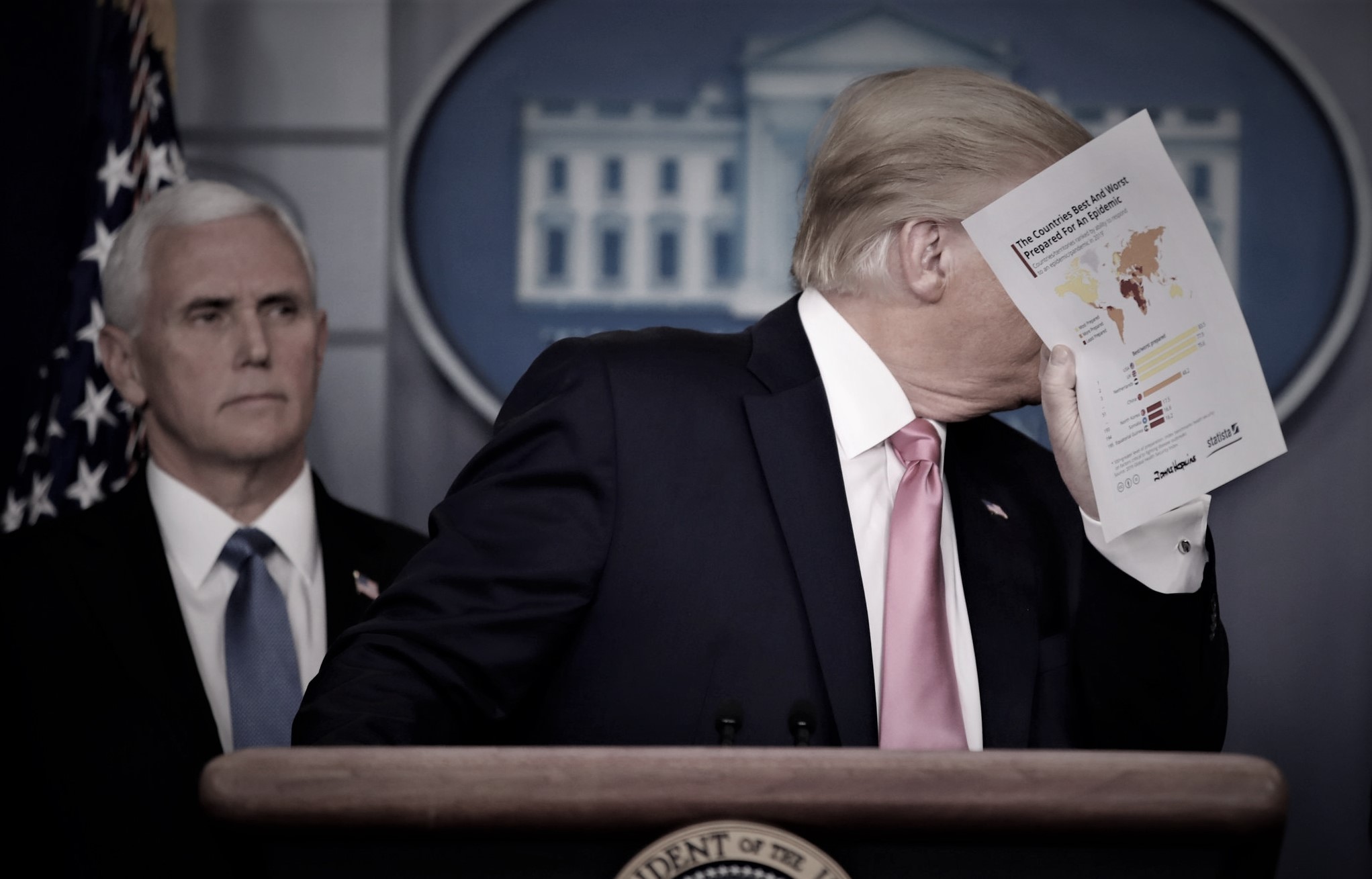Under a cloud of simmering fear, Senator Joseph McCarthy, absent any real evidence, announced to the American public that communists were working inside the federal government.

Photo: Carlos Barria/Reuters
During 1954’s Senate hearings investigating the Wisconsin Senator’s blatant character assassinations, one exchange was particularly noteworthy.
Following McCarthy’s accusation that counsel for the committee, Joseph Welch, placed a member and communist from his own law firm on the Senate panel, Welch explained how he learned of the young man’s background and told everyone in the room that the associate did not take any part in the committee’s work.
McCarthy couldn’t let it go as he continued his attack on the attorney, prompting this memorable response from Welch:
“Let us not assassinate this lad further, Senator. You’ve done enough. Have you no sense of decency, sir, at long last? Have you left no sense of decency?
In our current context, the question is fitting.
Set against a backdrop of fear concerning the coronavirus, the president has leveraged the issue into yet another political attack, blaming the media and Democrats for exaggerating the threat, contradicting many of the facts about a disease that is spreading throughout the world.
In a White House press conference, Trump said, “We have a total of 15 people, and they’re in a process of recovering with some already having fully recovered.”
“Trump claimed that 15 Americans had contracted the new virus,” Politifact writes, “even though the CDC’s total count was then at 60 and is now up to 61.
“At another point, Trump said the United States is ‘rapidly developing a vaccine’ for the coronavirus and would ‘essentially have a flu shot for this in a fairly quick manner.’
“But Anthony Fauci , director of the National Institute of Allergy and Infectious Diseases, said in the same press conference that a vaccine was likely a year to a year and a half away. That would still be quick, but not fast enough to help manage the current outbreak.”
On Friday, White House chief of staff, Mick Mulvaney said, “ ‘The reason you’re seeing so much attention to [the coronavirus] is that they think this is going to be the thing that brings down the president. That’s what this is all about it,’ ” The New York Times reported (Feb. 28).
Hours later, at a rally in South Carolina, President Trump said, “Now the Democrats are politicizing the coronavirus. This is their new hoax.”
“Hoax” … that’s how the president of the United States describes what the CDC and World Health Organization officials called a “public health emergency of international concern.”
This is what passes for leadership.
Ethicist Michael Josephson writes that “…an accountable person does not seek to shift blame to others… they consider the possible consequences ahead of time and accept personal responsibility for the foreseeable consequences of their actions and inactions. They also seek to lead by example.”
During critical times in our history, the American people have turned to their leaders to tell them the truth; help us overcome our fear and inspire us with hope.
On December 8, 1941, President Franklin Roosevelt addressed Congress and the American people with the truth.
“Mr. Vice President, Mr. Speaker, Members of the Senate, and of the House of Representatives: Yesterday, December 7th, 1941—a date which will live in infamy—the United States of America was suddenly and deliberately attacked by naval and air forces of the Empire of Japan.”
“The White House was inundated with telegrams praising the president’s stance,” Wikipedia cites. “ ‘On that Sunday, we were dismayed and frightened, but your unbounded courage pulled us together.’ ”
With Roosevelt’s trusting words, we moved forward.
Facing a potential threat of nuclear war between Russia and the United States, President Kennedy clearly and thoughtfully addressed the American people with both truth and hope.
“My fellow citizens: let no one doubt that this is a difficult and dangerous effort on which we have set out. …But the greatest danger of all would be to do nothing.
“The path we have chosen for the present is full of hazards, as all paths are – but it is the one most consistent with our character and courage as a nation and our commitments around the world. The cost of freedom is always high–and Americans have always paid it. And one path we shall never choose, and that is the path of surrender or submission.”
Together, we moved forward.
In his first inaugural address, Lincoln attempted to calm the nation’s fear over an inevitable civil war, while resolutely standing by his oath of office.
“You have no oath in Heaven to destroy the government,” Lincoln affirmed, “while I shall have the most solemn one to preserve, protect, and defend it…
“We are not enemies, but friends. We must not be enemies. Though passion may have strained, it must not break our bonds of affection. The mystic chords of memory, stretching from every battlefield and patriot grave, to every living heart and hearthstone, all over this broad land, will yet swell the chorus of the Union, when again touched, as surely they will be, by the better angels of our nature.”
In the midst of a crisis, all these leaders had proven their trustworthiness to the American people.
Faced with another crisis, where is that trust, now?
Comments
Leave a Comment












Excellent commentary, Jim. “Hoax” — try telling that to the families of anyone who has died from the virus, fighting the virus or quarantined.